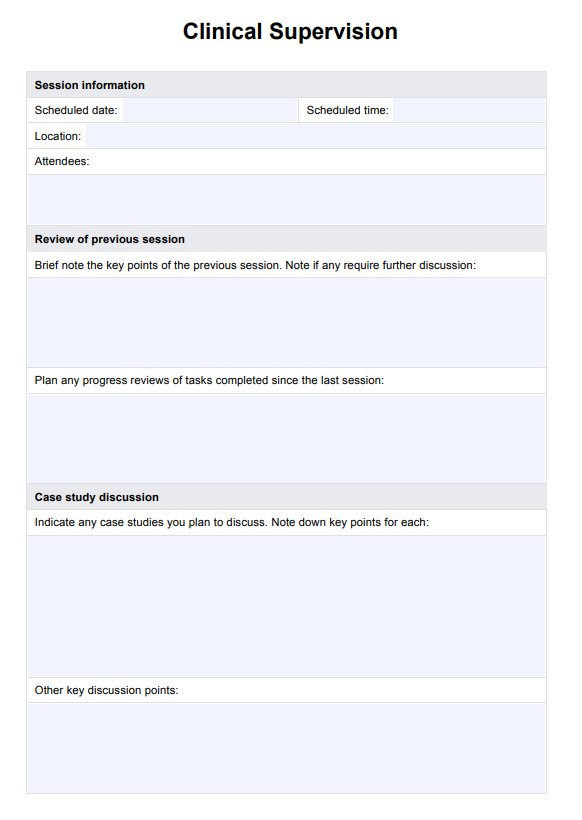The Clinical Supervision Template is customizable to meet specific needs and preferences. Supervisors can adapt it to address unique challenges, focus areas, or organizational requirements, providing flexibility while maintaining a standardized approach to supervision.

Clinical Supervision Template
Download our Clinical Supervision Template to optimize your professional supervision practice, ensuring sessions are productive and effective.
Clinical Supervision Template Template
Commonly asked questions
Absolutely. The template's versatility applies to various healthcare settings, including clinics, hospitals, universities, and agencies. Whether in hospital settings, nursing, counseling psychology, or physiotherapy, the template can be tailored to suit the context of clinical supervision.
Broadly speaking, the important aspects of a clinical supervision session include discussing real-life client cases, identifying areas where clinical skills or knowledge needs improvement, and gaining mentorship advice to improve the supervisee's confidence.
EHR and practice management software
Get started for free
*No credit card required
Free
$0/usd
Unlimited clients
Telehealth
1GB of storage
Client portal text
Automated billing and online payments











